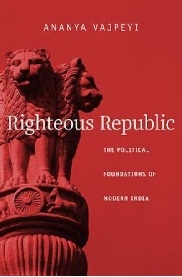The plethora of commentaries and critiques on Indian political thought in the early seventies that saw a dismal disconnection between theoretical endeavours and philosophical traditions, was based on the fact that the latter seemed to play no role in the way social sciences and politics were practised in India and elsewhere. Western theorizing on a set of thinkers that belonged to the liberal canon was seen to constitute an authentic political tradition. Other writers were included or excluded according to how they were compatible with the larger aims of this canon.
In the last two decades a lot of interest has been generated in what is termed ‘indigenous’ political thinking. One of the daunting tasks of doing work of this kind is to analyse the colonial contexts in which ideas and theories emerge, and the socio-historical changes that those ideas and theories intended to bring about.

